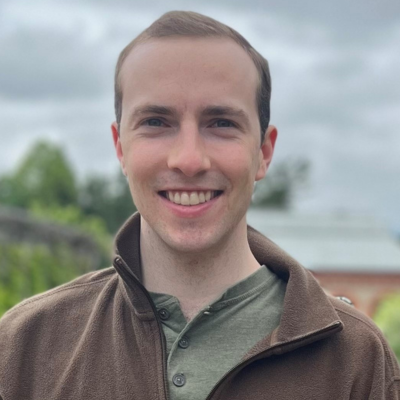Alan LeBlang ’24 chosen for FASPE Ethics Fellowship
LeBlang sought a law fellowship to nurture his moral and ethical compass as an aspiring lawyer.
Alan LeBlang ’24 has been selected for the 2024 Law Program of the Fellowships at Auschwitz for the Study of Professional Ethics (FASPE). He joins 13 other law students and early-career lawyers for a two-week program that uses the conduct of legal professionals in Nazi-occupied Europe as a framework for approaching ethical responsibility in the legal profession today.
 “I applied to become a FASPE Law Fellow because I was drawn to the program’s historical approach to contemporary ethical dilemmas,” LeBlang said. “FASPE teaches young professionals about the societal pressures that led to the ethical breakdown of professions in Nazi Germany to help them embody ethical decision-making in their professional and personal lives.”
“I applied to become a FASPE Law Fellow because I was drawn to the program’s historical approach to contemporary ethical dilemmas,” LeBlang said. “FASPE teaches young professionals about the societal pressures that led to the ethical breakdown of professions in Nazi Germany to help them embody ethical decision-making in their professional and personal lives.”
At Duke Law, LeBlang has served as external chief executive editor of the Duke Law & Technology Review, president of the Health Law Society, and co-vice president of the Business Law Society. He has also externed for Duke University’s Office of Counsel and worked as a research assistant for the Wilson Center for Science and Justice at Duke Law.
As a FASPE Law Fellow, LeBlang will take part in an intensive study with daily seminars and dialogue at sites of historic importance in Germany and Poland. He will travel with the business and design & technology fellows, as an opportunity to compare and contrast perspectives on ethical constructs and norms in these professions. The law program will be led by David Luban, Distinguished University Professor in Law and Philosophy at Georgetown University, and Tim Sperling, Head of Litigation and Governmental Investigations at Boehringer Ingelheim.
Now in its 14th year of operation, FASPE annually grants 80-90 fellowships to graduate students and early-career professionals in the fields of business, design & technology, journalism, law, medicine, and seminary. The goal, says FASPE Chairman David Goldman, is “to instill a sense of professional responsibility for the ethical and moral choices that the fellows will make in their careers and in their professional relationships.”
LeBlang says he heard about the program from an associate at a law firm who was a FASPE Fellow in 2018.
“She told me FASPE gave her the tools to prioritize ethical decision-making in a profit-driven workplace, and that she still regularly connects with her co-fellows to discuss emerging ethical dilemmas in the legal profession,” LeBlang said. “I decided to apply because I wanted to start my legal career with a strong ethical foundation like the one she described.”
Several criteria are involved in the fellowship application process, including submitting a résumé and transcripts, several short essays, and two letters of recommendation. LeBlang said he was grateful for the help he received from faculty members.
“I would like to thank Professors Anne Gordon, Andrew Foster, and Jeff Ward for helping me craft my application, and for helping me understand the importance of ethical leadership in the law.”